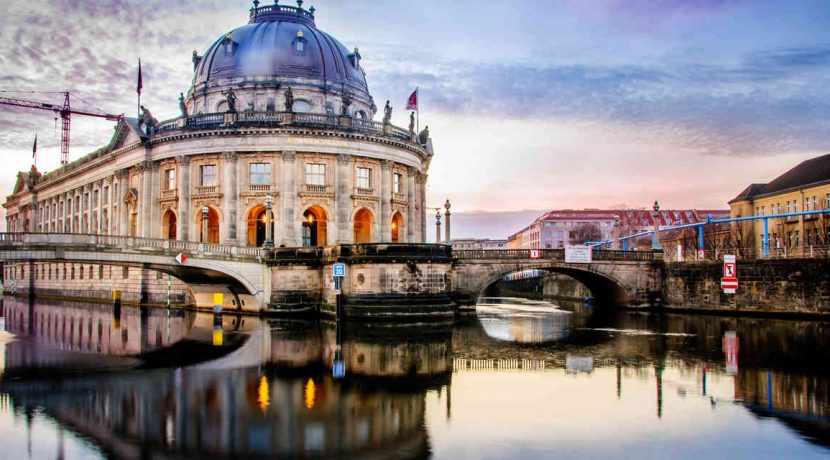During the world financial crisis Germany remained one of the most stable countries in the world, being just slightly touched by the crisis. No wonder: saving Germans will always find financial resources to overcome the financial problems. As well as the prudence of German banks prevented the crisis from capturing the country. This factor caused the new boom on the German real estate market. To be honest, where else can you invest your money so cheap, profitable and safe? At the moment everything is being bought in Germany: apartments, houses, apartment blocks, commercials Of course a special position in the rating of the most attractive cities belongs to Berlin, the German capital.
Such popularity has been caused by several reasons:
1. Of course unbelievably low prices!
Between 1994 and 2004 the prices for real estate in Berlin were permanently falling down. It was directly connected with the Berlin’s history, its partition and painful reunification after the Berlin wall fell down. Many Berlin’s inhabitants left the city selling their properties almost for free. The prices fell down almost by 30% and still keep on the same level. The medium price for a square meter in the Germany’s capital equals app. 1024 euro, which in comparison with the prices in London (7500 euro/m2), Paris (6000 euro/m2) seems to be ridiculous. You can buy a studio in Berlin even for 20.000 Euros! No wonder that Berlin’s real estate attracts more and more buyers, investors and tenants every year.
2. Capital growth potential.
Presently the population of Berlin is 3,5 million, but till 2010 it is awaited to rise up to 5 million. It will cause the rise of demand for Berlin properties and therefore the price growth. The prognoses say that in five years the prices will redouble and according to the information from Eduard-Pestel institute till 2030 the prices will quadruplicate. It is caused by the building boom of the last decade, high yields from the tenanted properties, federal government and parliament removal to Berlin, change of political role of the city, huge inflow of big and middle companies and capital, increase of touristic flow and air transport services through Berlin etc. The real estate experts prognose, that the prices for Berlin properties will rise up to the price level in other leading European capitals.
3. Leading city in Europe.
Berlin is the capital city of one of the most developed European countries with the highest gross domestic product in European Union, the second country in the world with the biggest trade turnover, one of the richest countries in Europe. Berlin is an international metropolis with a favorable climate for investments of all kinds. Berlin is situated in the heart of Europe, in the immediate vicinity to other European capitals. The city is more than 770 years old. It is the residence of federal government and parliament, a city of business conferences and exhibitions, of museums and collections, a place for excellent shopping, a city of international festivals and carnivals; it combines antique monuments and modern architecture. In the rating “European Cities&Religions of the Future” by the fDi magazine in 2008 Berlin got the honorable third position, standing after Paris and London.
4. Green city.
Berlin is considered to be the most green capital city in Europe. There are plenty of parks, public gardens, forests, green territories in the city. No other European city has so many lakes, channels and other water bodies as Berlin. The water surfaces make up app. 7% of the territory; forests – app. 18%, parks and public gardens – app. 12%. In spite of the big population Berlin stays a very spacious city with wide streets, large parks and gardens. Owing to a perfectly arranged transport network, there are almost no traffic jams and the content of harmful substances in the air is reduced to a minimum.
5. Loyalty of German legislation towards foreigners.
German legislation is very liberal towards foreigners. Citizens of other countries can purchase both residential and commercial properties without any restrictions, including architectural monuments. Properties can be bought either for a natural or for a legal person. For purchase you will need only you passport and money.
6. High yields.
According to statistics only 12% of Berlin citizens reside in their own apartments. The rest rent their dwelling. Around Germany this number makes up 43%. That’s why it is not difficult to understand, what a potential Berlin contains! Yields, i.e. annual net income from tenanted apartment, are between 4 and 10%. That’s why more and more foreigners buy German properties like a short-term investment (i.e. from tenanting) or a long-term investment (i.e. capital growth).
7. Stability of German laws, safe investments.
German real estate market is notable for high stability and safety of investments. Stable economics and reliable legislation eliminate investment risks. The laws concerning German properties owning and purchase have been stable since 100 years. German legislation protects both buyer and vendors, excepting cheatings and reducing risks to zero.
8. Availability of financing by German banks.
At the moment the mortgage rates in German banks are between 4 and 5%. As a rule German banks finance 50-60% from the property price. It is also important, that German banks are very loyal towards foreigners and put no obstacles in getting a mortgage by the citizens of other countries. During the world financial crisis this fact affects the attractiveness of German real estate especially positively.
All rights reserved to the initial publisher for immobiliya
Collected and published by Arms &McGregor International Realty® editorial team. Get in touched with
us at [email protected]

